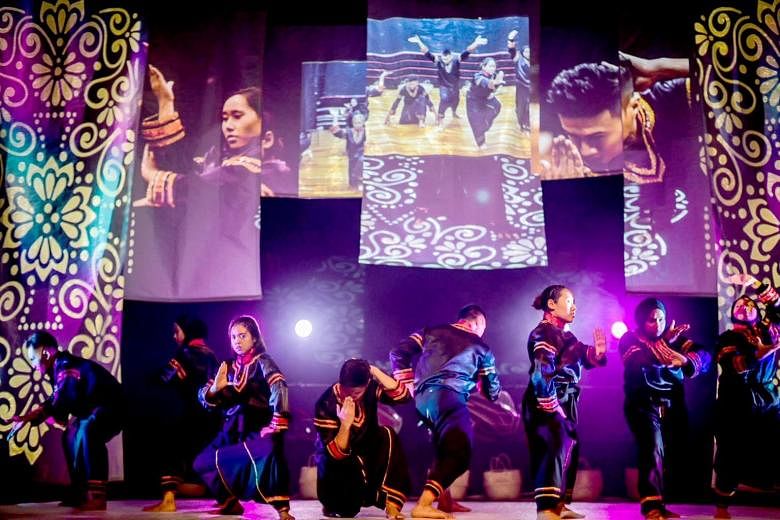Review/Theatre
The (Assumed) Vicious Cycle Of A (Melayu) Youth
Malay Heritage Centre, July 27
Akshita Nanda
Why is a work of Malay theatre performed half in English? Why does a work of Singaporean theatre highlight the traditional performance art of an Indonesian ethnic group?
Assumptions and stereotypes are cheekily shaken up in this energetic play written and directed by Anwar Hadi Ramli and produced by Saiful Amri Ahmad Elahi.
The (Assumed) Vicious Cycle Of A (Melayu) Youth, which ended a mostly sold-out run on July 28, shows milestones usual in a young Singaporean's life, such as birth, pre-school, secondary school and tertiary education.
It highlights rites of passage specific to a Malay youth, such as the parents deliberating whether or not to send a child to a madrasah or a secular school, and which language to speak at home - Malay or English?
The (Assumed) Vicious Cycle Of A (Melayu) Youth is staged half in English, for greater accessibility to all audiences - including, a performer says pointedly, to Malay viewers - and is a must-watch.
Anwar first wrote and staged the play for his students at Republic Polytechnic, aiming to make them recognise the format of their lives and question whether following well-trodden routes would truly make them happy.
It is easy to see why his play last year won the best theatre script award at the Anugerah Persuratan, a biennial award given out by The Malay Language Council since 1993 and one of the highest local accolades for Singapore writers.
Different scenes send up stereotypes, starting with the recognisable and palatable - parents competing to prove their child is better than the neighbour's - to those oft-unspoken and harder to swallow.
Can a young Malay in Singapore aspire to be prime minister one day or an air force pilot? The play touches lightly on systemic issues such as racism. Since there are barriers, it is far easier instead to take low-hanging fruit, to find a job, marry, have kids and start the cycle again.
The staging intersperses comic sketches with powerful, acrobatic dances choreographed by Norisham Osman in the style of randai. This performing art of the Minangkabau ethnic group mixes the martial arts moves of silat with song, dance and drama.
Why use randai? Given Singapore's small size, it needs to be open to wider influences, the performers say in words, while spinning around in circles on stage.
Similarly, humans need to be open to new ideas, rather than spinning around in the same old circles unquestioningly, the production says.
The cast of eight moves naturally between dialogue and dance and includes Amirah Yahya, Siti Rauzaanah (Nana), Al-Matin Yatim, Fadhlur Rahman, Diyanah Khalifa, Asfarina, Nurfareena Md Noor and Syawal Ahmad.
Live music from music director Wan Ramli and musician Muhd Ridzman Mohd Salleh changes the mood at a beat from comic to serious questioning, notably in a scene revisiting the legend of Hang Tuah and Hang Jebat.
As the brothers-in-arms fight at the command of their king, it underscores how the present-day characters in the play subordinate their childhood dreams of great achievements to the commands of their parents and to the social structures which dictate what they should do with their lives.
If only this play had shown at least one character breaking free from the cycle, it would have elevated an already thought-provoking work and put an entirely different spin on the evening.


